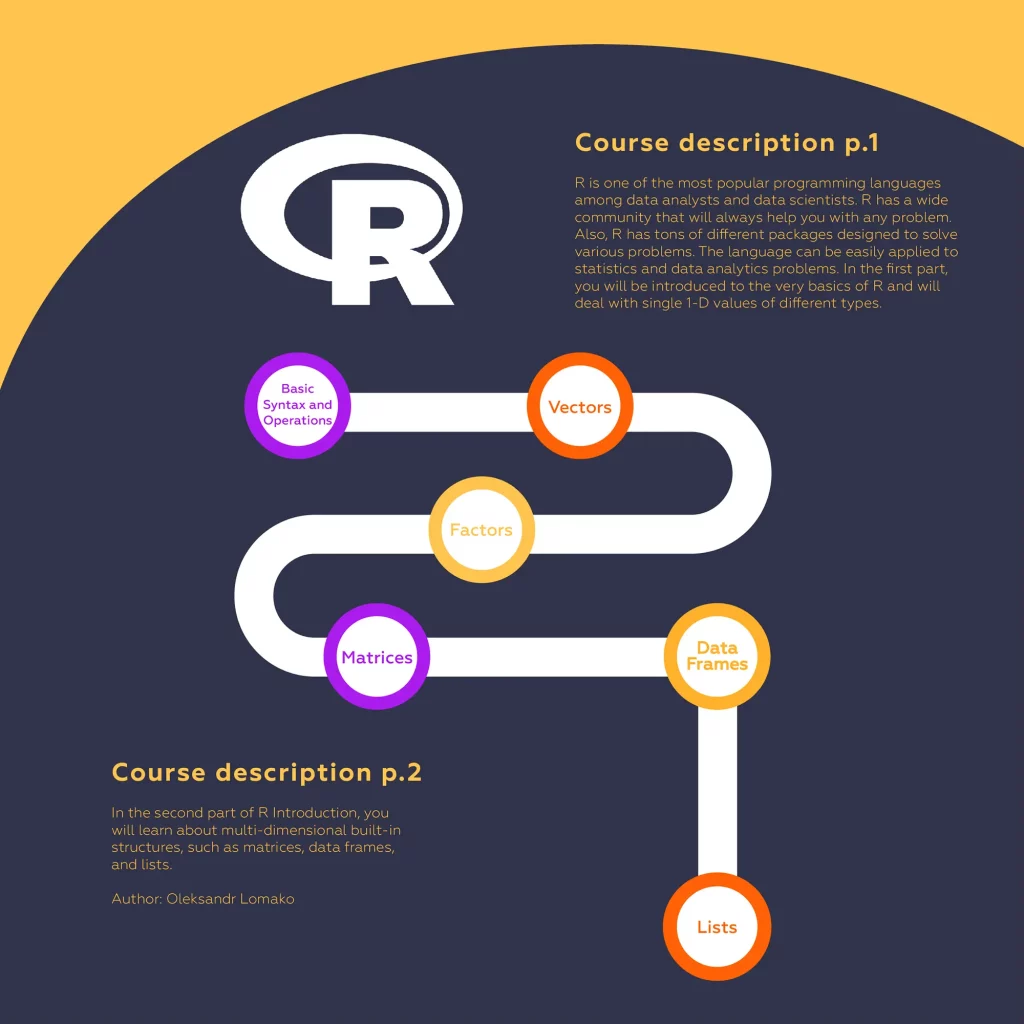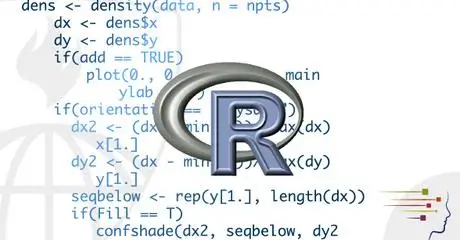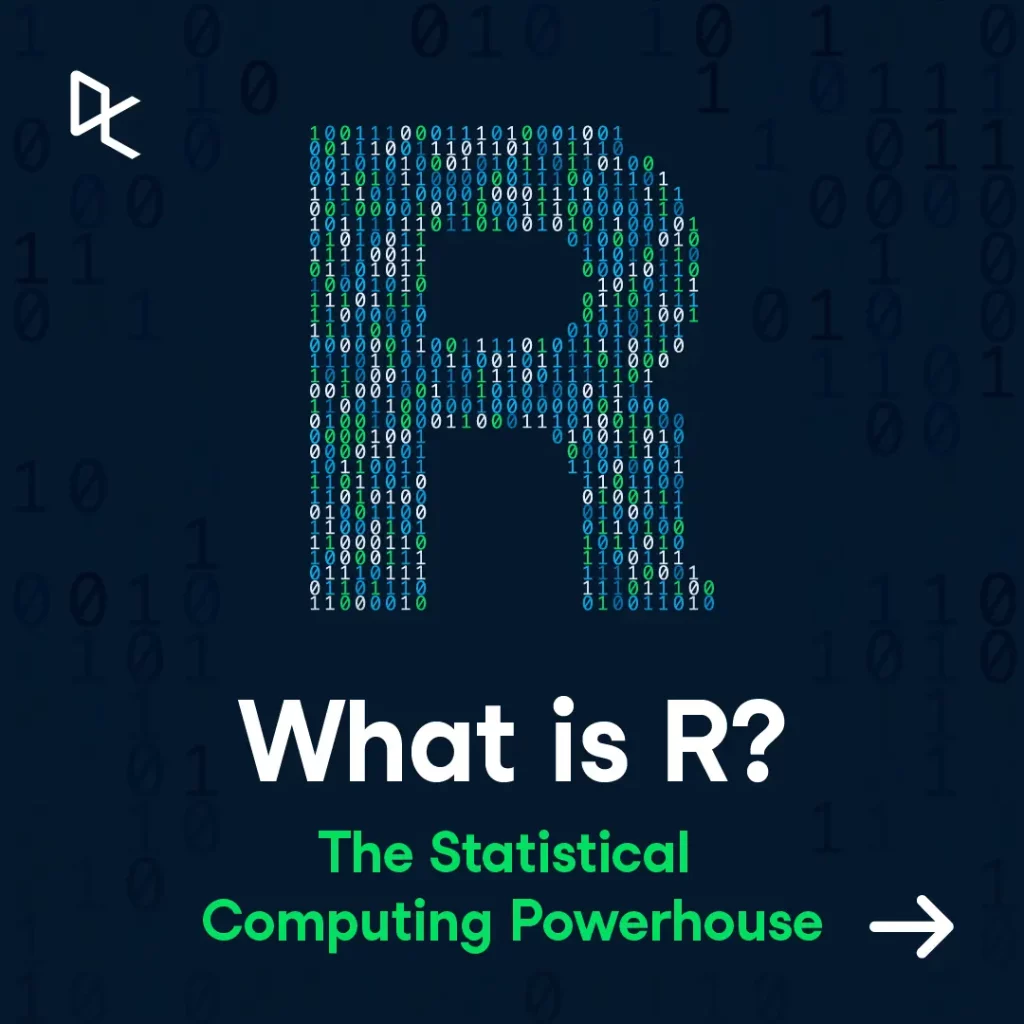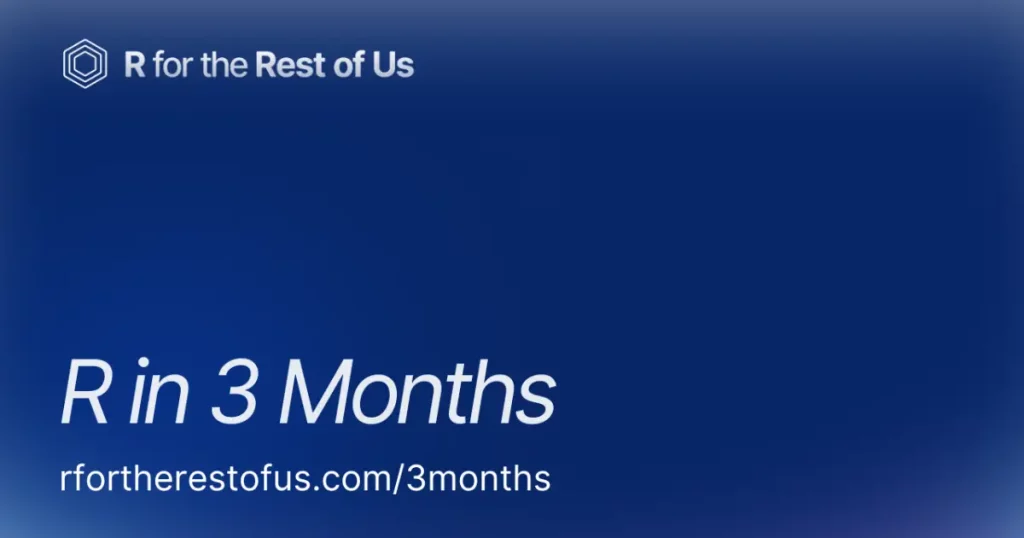
Did you know that over 2 million statisticians and data scientists worldwide use R?
A big reason why R is so commonly used worldwide is due to its ease of use; depending on your strategy and the type of course you take, you could become adept at using R in as little as 3 months.
Some of the most commonly used online course providers for learning R include Codefinity, Coursera, DataCamp, and R for the Rest of Us.
Regardless of which provider(s) you choose, it’s important to remember that if you wish to make the most of your learning journey, you should know what you’re aiming at, before slowly learning the coding to eventually build your projects.
What People Really Ask About Learning R
Without a doubt, R is the most widely used statistics software for data scientists and statisticians worldwide. From global tech companies (i.e. Google, SpaceX, Amazon) to just about any STEM researcher, R has solidified itself as the go-to professional data analysis software.
Thanks to its ease of use and powerful data visualization software, there is a high demand for R programmers throughout the job market. Besides tech, you can find R in just about any other industry, such as finance, video games, big pharma, and insurance. And of course, statistics is an essential part of just about any STEM field, so you can also expect to find them in both government and academia.
Review of Online Course Providers
For the 4 online course providers mentioned in this article, each will be evaluated based on their content quality, structure, support, and cost so that you can have the best comprehensive picture of which may be best for you.

1: Codefinity R Programming for Beginners
Overview
Content: Codefinity R Programming is an introductory R course for new users of R. It teaches the basics of the language including the essential syntax (wording), functions, data types, and operations. Content is spread over 26 classes.
Structure: The entire course is self-paced with interactive practice projects in every class.
Support: Support services include a plethora of community forums and some limited tutor services.
Cost
Codefinity is a subscription-based service with a “pro” and “ultimate” plan:
Pro (40+ courses; early access)
1 month – 49 USD
3 month – 99 USD
Annual – 144 USD
Ultimate (Pro + personalized study tracks + 20 hands-on real-life projects)
1 month – 59 USD
3 month – 147 USD
Annual – 299 USD
Pros & Cons
While Codefinity provides courses that are very beginner-friendly and interactive with plenty of bite-sized guidance tips along the way, their advanced courses and community-based support can be limiting.

2: Coursera R Programming
Overview
Content: Coursera’s R programming course provides a comprehensive introductory guide to R, including data manipulation and basic statistical analysis.
Structure: The course is self-paced and is divided into 4 modules, 1 per week, with each containing videos, readings, quizzes, and practice assignments.
Support: Peer review forums are available throughout the course, and you also have the option of reaching out to the course instructor(s) directly.
Cost: The course is free to audit, but graded assignments and the course certificate will cost you $49 per month. A 7-day free trial is available, and you may also apply for financial aid.
Pros & Cons
As a MOOC (massive open online course), the Coursera R programming course is designed for self-study and hence, the user interface is very well-structured for easy navigation throughout the course.
On the other hand, while the course itself is well-structured, the assignments are sometimes considered too difficult and not in conjunction with the material taught. Some also point out the need for additional examples in the course. The forum support is also not consistent and varies by specific modules.

3: DataCamp R Programming
Overview
Content: DataCamp R Programming contains a variety of courses and tracks to choose from depending on your skill level and goals. Topics vary widely, with common ones including data visualization and machine learning.
Structure: All courses are interactive and provide real-world projects for you to apply your skills along the way. Individual courses within the tracks are often taught by various instructors.
Support: DataCamp provides vast community and professional support options. Communities include both current learners and an executive community for certified learners (Data Scientists/Analysts) to make the most of their skills. There are also extensive resources, such as webinars, blogs, cheat sheets, and tutorials, available to all learners.
Cost
DataCamp is a subscription-based service, with plans and prices varying depending on your needs and timeframe:
Learning Plans
Basic – Free (First chapter of each course is free)
Premium – 25 USD/month (billed annually) or 39 USD/month
Teams (2 people or more) – 25 USD/month/user (billed annually)
Enterprise – Contact for details
DataLab Plans (for data insight sharing)
Starter – Free
Premium – 9 USD/month/user (billed annually) or 15 USD/month/user
Pros & Cons
DataCamp R Programming benefits from having a very comprehensive course catalog with plenty of hands-on practice opportunities, along with an extensive community and professional support platform with a plethora of resources available.
On the downside, the sheer amount of material available might get overwhelming for complete beginners, and the necessary subscription cost is another factor to consider.

4: R for the Rest of Us 3 Months Course
Overview
Content: R for the Rest of Us 3 Months Course is an extensive program to help beginners excel in using R with a focus on practical applications and real-world datasets.
Structure: The program offers a guided learning experience to get you to where you need within 3 months. It uses a combination of courses and live sessions to provide you with additional guidance along the way.
Support: Weekly live sessions and community forums are available for you to receive direct personalized support from instructors and fellow learners. All live sessions, along with their exclusive concept videos, are recorded for future use.
Cost: This course is available twice a year, and requires a one-time payment of 1099 USD (a 100 USD early bird discount is available). Full refunds are available within the first 2 weeks of class.
Pros & Cons
The program is very well structured with a focus on real-world practical applications. It also includes active professional and community support to make sure you receive the personalized help you need.
With its focus on practicality, the program needs more theoretical approaches. The high cost is also something worthy of consideration.
Your Options Summarized
Below is a table giving you the pros and cons of each provider mentioned in this article, so you can make a quick reference when you’re ready to commit.
Program | Pros | Cons |
Codefinity R Programming |
|
|
Coursera R Programming |
|
|
DataCamp R Programming |
|
|
R for the Rest of Us |
|
|
FAQ Section
How difficult is R to learn?
R can be a bit more difficult to learn compared to other programming languages due to its relatively more foreign syntax. Nonetheless, some prior experience in programming or statistics will help immensely.
Do I need prior programming experience?
You don’t need prior programming experience to learn R, as many people who use the language aren’t statisticians or computer scientists by trade.
How much time should I dedicate daily/weekly?
Typically, one would need roughly 2-3 hours a day and up to 4-6 weeks to become proficient at using the language for general use. Of course, there’s always more to discover but this should be enough time for you to get a good handle on the basics.
What resources are most effective for beginners?
The best way to learn the language is through a comprehensive approach. This includes using books, taking online lessons, and attending live classes. Books are usually used as companions to live courses and lessons, where you can apply your knowledge in real-life settings.
Conclusion (Choosing the Best Course for You)
Each of the providers and courses discussed in this article has its pros and cons, thus which you choose will ultimately depend on your aims and circumstances. Regardless, as long as you have the drive to achieve your goals, it is usually only a matter of weeks before R becomes second-hand knowledge.
